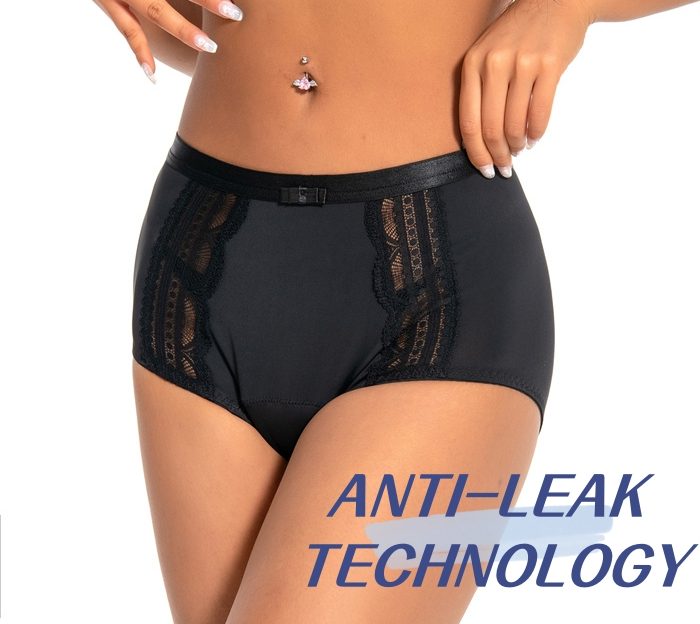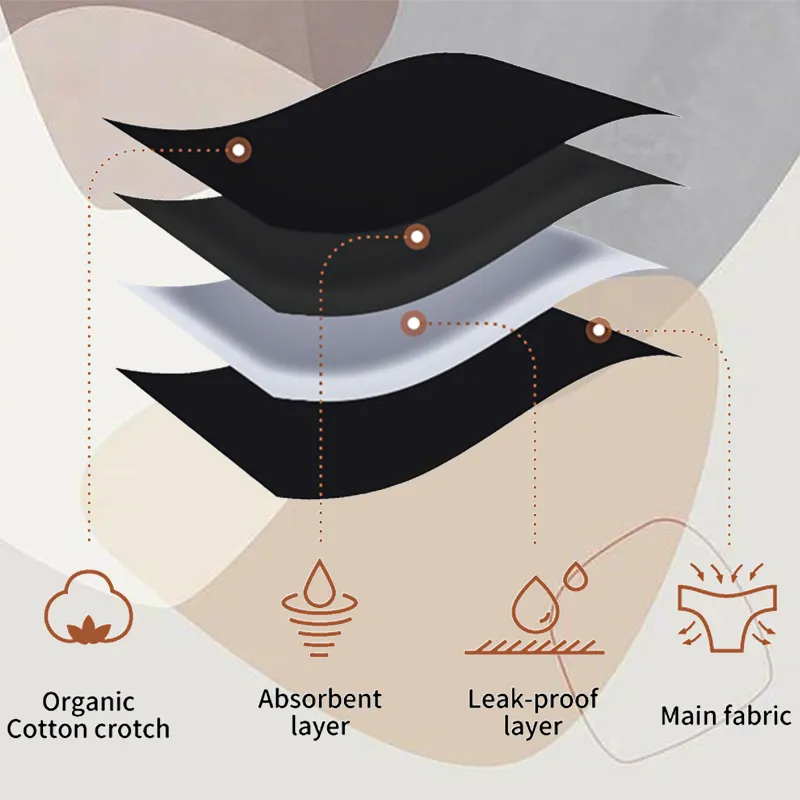When it comes to period care products, it’s easy to find what you know. Your menstrual products may be convenient and reliable, but what if you could try a greener option? The focus is on reducing plastic pollution – and we can help achieve this by making simple, sustainable switches in our daily lives. So why not explore reusable menstrual products?
Too sanitary napkins, tampons pollute the environment, more environmentally friendly anti-menstrual underwear to consider? Menstrual hygiene products are one of the most important necessities for women, and sanitary napkins and tampons are the two most popular menstrual products for women around the world. However, whether it is sanitary napkins or tampons, the pollution caused by the environment is very serious. What are the catastrophic damages that sanitary napkins bring to the living environment?
‘White pollution’ —The pollution and harm caused by plastic bags and disposable foam tableware have been highly valued by the relevant departments. But an alternative “white pollution”, until now has not attracted people’s attention, that is sanitary napkins. As a result of being thrown away, the new “white pollution” can now be found almost everywhere in garbage dumps, public toilets, even lakes and farmland.
Sanitary napkins are not suitable for landfills —The ingredients of disposable sanitary napkins, including polymer absorbent resin and PE film and other raw materials, this part of the material is difficult to degrade naturally, because they are a plastic material, to a certain extent equivalent to plastic, are extracted from petroleum, the biological world has no enzymes that can decompose it. To melt after a long hundreds of years, someone once said that sanitary napkins, when we passed away, they still exist, on the earth, they are “immortal”.
Sanitary napkins are not suitable for burning —Experts have also rejected another popular treatment for rural women, because the water-absorbent polymer is somewhat equivalent to plastic, and burning it will produce the most toxic class of substances found so far: dioxins. Dioxins enter the soil and take at least 15 months to break down gradually. And dioxins can cause serious damage to the liver and brain in humans and other animals. Used sanitary napkins can’t be flushed down the drain (which can clog toilets), they can’t be recycled, and because plastic can take hundreds of years to degrade, they’re the main protagonists of landfills.
According to research, women will use a total of about 10,000 sanitary napkins during their menstrual period of about 40 years in their life, and the volume of waste created will take several trucks to carry it!
— How can we reduce the amount of garbage and relieve the pressure on the environment? — Period underwear! A very environmentally friendly female menstrual products have gradually been manufactured and used, this underwear looks no different from normal underwear, but in fact, it is made of multiple layers of materials, including absorption layer and anti-bacterial fabric layer.
A very environmentally friendly female menstrual products have gradually been manufactured and used, this underwear looks no different from normal underwear, but in fact, it is made of multiple layers of materials, including absorption layer and anti-bacterial fabric layer.

In the process of menstruation, women do not need to use sanitary napkins or tampons, only need to put on this underwear, after use, first soak and then wash, you can use repeatedly. Women can prevent waste by using their underwear multiple times through the normal washing process! The design of physiological pants can bring the extra security that traditional underwear and menstrual hygiene products do not have, of course, this underwear brings much more than that! It is highly absorbent and stays dry to the skin like any other underwear, providing extreme comfort and the ability to wear it all day long.